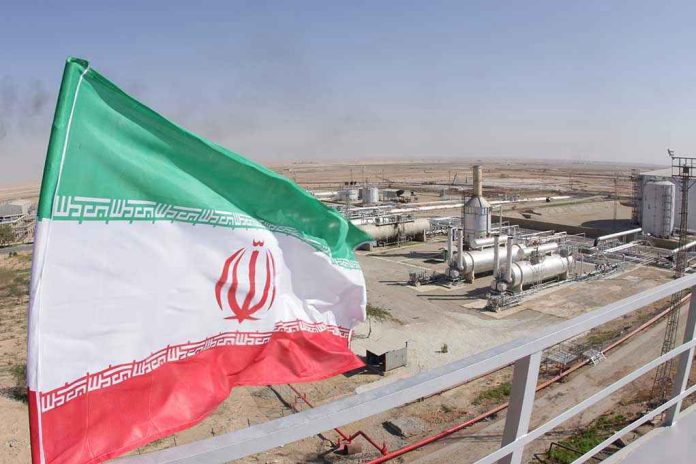
An American activist’s shocking call for “Death to America” and “Death to Israel” at a Tehran rally has sparked outrage and intensified debates over the boundaries of protest and propaganda.
At a Glance
- Calla Walsh, an American activist, chanted “Death to America” and “Death to Israel” in Tehran.
- Walsh attended a state-sponsored event organized by the Islamic Revolutionary Guard Corps.
- Her actions have been widely condemned in the U.S. and viewed as a propaganda win for Iran.
- The event highlights the contentious relationship between U.S. activists and foreign adversaries.
American Activist’s Shocking Statements in Tehran
Calla Walsh, a 21-year-old American activist previously involved in anti-Israel protests in the U.S., traveled to Tehran, Iran, in July 2025. During a state-sponsored event organized by the Islamic Revolutionary Guard Corps (IRGC), she publicly declared “Death to America” and “Death to Israel.” These statements were broadcast on Iranian state media, drawing widespread condemnation in the United States. Walsh’s actions at the event, known as the “International Memorial for the Media Martyrs of the Struggle against the Zionist Regime,” have intensified the debate over the role of American activists in international conflicts.
The event, held from July 17 to 21, 2025, was organized by Iranian state broadcaster IRIB and the IRGC, both of which are sanctioned by the U.S. Walsh’s transition from U.S. progressive politics to openly supporting Iran’s regime has raised eyebrows, especially given the event’s timing, following a recent Israel-Iran conflict and amid heightened U.S.-Iran tensions.
Escalation of Anti-Israel Activism
Walsh’s involvement in anti-Israel protests in the U.S. dates back to 2023, including direct actions against Elbit Systems facilities. In February 2024, she pleaded guilty to misdemeanors related to these protests and served a short jail sentence. Her actions in Tehran represent a significant escalation from domestic protests to direct collaboration with a foreign regime known for its hostility towards the U.S. and Israel. This shift underscores the increasing militancy among certain factions of U.S. anti-Israel activism, which has grown more brazen in recent years.
The July 2025 event in Tehran was part of Iran’s broader strategy to amplify international voices critical of Israel and the U.S. By inviting foreign activists to participate in propaganda events, Iran seeks to legitimize its anti-Western stance and counter international isolation. For Walsh, the event provided an international platform to amplify her ideological beliefs, despite the controversial nature of her statements.
Reaction and Backlash
In the United States, Walsh’s statements have been met with severe criticism from both mainstream media and political actors. Many view her actions as a betrayal of American values and an endorsement of a regime that oppresses its own people. Jewish and pro-Israel communities have expressed deep offense and concern over the event, viewing it as a direct threat. Meanwhile, progressive and anti-war activists are divided, with some defending Walsh’s solidarity with Palestinians but questioning the wisdom of aligning with Iran’s regime.
Expert commentators have described the event as a propaganda coup for Iran, further entrenching Iran’s strategy of using Western dissidents to bolster its narrative. Nadwa Al-Dawsari of the Middle East Institute criticized Walsh’s actions as a disconnect between activist rhetoric and the realities of Iranian repression. The event highlights the ethical challenges faced by activists who engage with authoritarian states.
Implications for U.S. Activism
Walsh’s actions could have significant short-term and long-term implications for U.S. activism. In the short term, her actions may increase polarization in American discourse on the Israel-Palestine conflict. There could also be legal or reputational consequences for Walsh and affiliated groups. In the long term, the event may have a chilling effect on activist travel to adversarial states and further entrench Iran’s propaganda strategies using Western dissidents.
This incident raises critical questions about the boundaries of protest and solidarity. It underscores the complex ethical terrain faced by activists who engage with foreign adversaries. As U.S. authorities and mainstream political actors continue to condemn such collaborations, the event serves as a stark reminder of the contentious relationship between American activists and foreign regimes.


